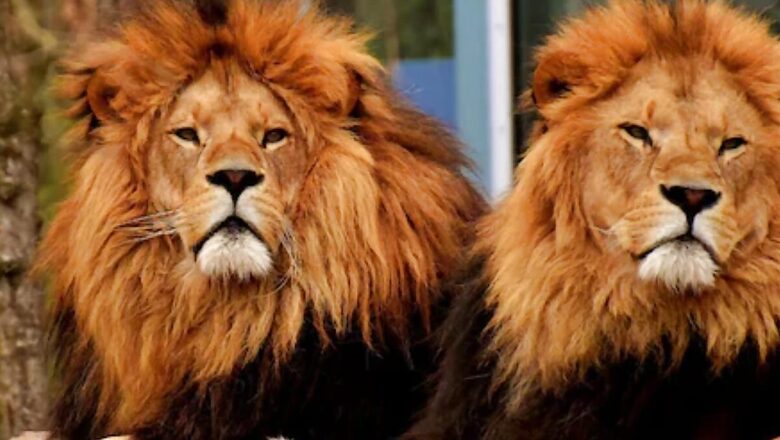
views
Two lion brothers were filmed performing an extraordinary life-and-death feat by swimming across a 1-kilometre stretch of Uganda’s Kazinga Channel. African lion brothers, Jacob and Tibu embarked on a night journey across the channel which posed threats from Nile crocodiles. They have set a new record for long-distance swimming.
The researchers joined hands with the Uganda Wildlife Authority and used heat-detecting drone cameras to track the movements of Jacob and Tibu. The researchers explained that lions occasionally hunt on both crocodiles and hippos, but are vulnerable when in water. They explained, “When crossing rivers in Africa, there is a high risk of injury or even death if you encounter a very large Nile crocodile or hippopotamus."
Their video was shared on YouTube and the research has been published in the journal – Ecology and Evolution. The video left the internet stunned. A user wrote, “Absolutely incredible this lion is, him and his brother to swim that far is astonishing and what he has been through makes it so much more remarkable. Hopefully, they get some females after that monumental swim." Another wrote, “We are probably the last generations to be able to see such magnificent creatures."
One of the brothers, Jacob is a 10-year-old lion and well-known to the local experts. He has a history of remarkable, almost miraculous survival. He has dealt with poison from poachers, the horns of a buffalo and got a leg amputated after he was caught in a poacher’s trap.
Researchers found that Jacob and Tibu’s journey may have been motivated by a search for a mate. But this brave adventure sheds light on the impact of the poaching of lions in Queen Elizabeth National Park. Alexander Braczkowsi, lead author of the study and a conservation biologist at Griffith University in Australia shared that the population has further declined by almost half in the last five years.
Interestingly, there is a safe route that does not involve crocodile-infested waters to travel, which is a road bridge. As per the conservationists, the lions assumably avoid taking the safer route due to the presence of people and security forces here.




















Comments
0 comment